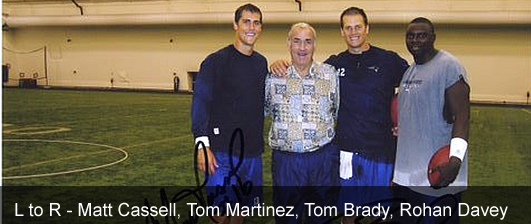
A college professor and mentor of mine once told me that during an injury evaluation if you listen just long enough your patient will tell you exactly what is wrong with them; and, if you listen just a little bit longer they’ll also tell you exactly what makes them better.
No need for special tests off the start, just listen and let them talk.
It’s become too easy to interrupt our patients during an injury history, because, well, we know exactly what’s wrong with them. No need to listen to their sob story – just order the MRI, X-ray or other diagnostic test and let’s keep moving.
“A well-known study of medical education found that medical students' interpersonal skills with patients declined as their medical education progressed (Helfer, 1970). This was particularly true for the student’s ability to take a good social history. It seems that as students learned more about the science of medicine they found it harder simply to talk with patients, and came to devalue this kind of activity. What were easy exchanges during the first years became an awkward and unproductive series of closed-ended, usually yes-no, questions later on. No doubt related to this narrowing of focus, Martin et al. (1976) found that as training progressed, physicians seemed increasingly to lose their grasp on the patient's total health picture and to focus more and more on biomedical issues.
Although the improvement of physicians' skills in interviewing is valuable, skill does not go to the heart of the matter. Medical school needs to do a better job of inculcating different attitudes in young doctors - in defining for them what is truly important about being a doctor and what are effective, and humane, doctor-patient roles. Our society must figure out how to influence their attitudes so that they come to value certain aspects of patient care differently. Then, of course, when these doctors become mentors themselves, they will provide a different kind of example to their students. If physicians saw themselves more as patient educators, medical education would be different, and the profession would engage in a different kind of self-scrutiny. More attention would be paid to the education of patients, which would translate into more sensitive involvement of doctors in the process of healing.” (p.18-19)
- Doctors Talking With Patients/Patients Talking With Doctors: Improving Communication In Medical Visits by Debra L. Roter and Judith A. Hall
The challenge then for us as health care providers is to put away the blackberry for a moment and get back to the lost art of patient talk.
Get back to real patient interaction and patient centered care – which places the patient as the center of focus and not our schedule or outside responsibilities.
Of course, ordering an x-ray just to be sure and sending the patient on their way is a lot easier then sitting down and talking with them.
Art Horne is the Coordinator of Care and Strength & Conditioning Coach for the Men’s Basketball Team at Northeastern University, Boston MA. He can be reached at a.horne@neu.edu.
Martin, D.P., Glison, B.S., Bergner, M., Bobbitt, R.A., Pollard, W.E., Conn, J.R., & Cole, W.A. (1976). The Sickness Impact Profile: Potential use of a health status instrument for physician training. Journal of Medical Education, 51, 942-947.
Helfer, R.E. (1970). An objective comparison of the pediatric interviewing skills of freshman and senior medical students. Pediatrics, 45, 623-627.




